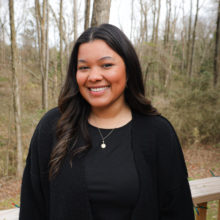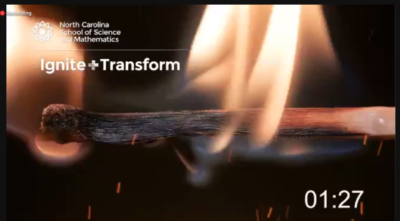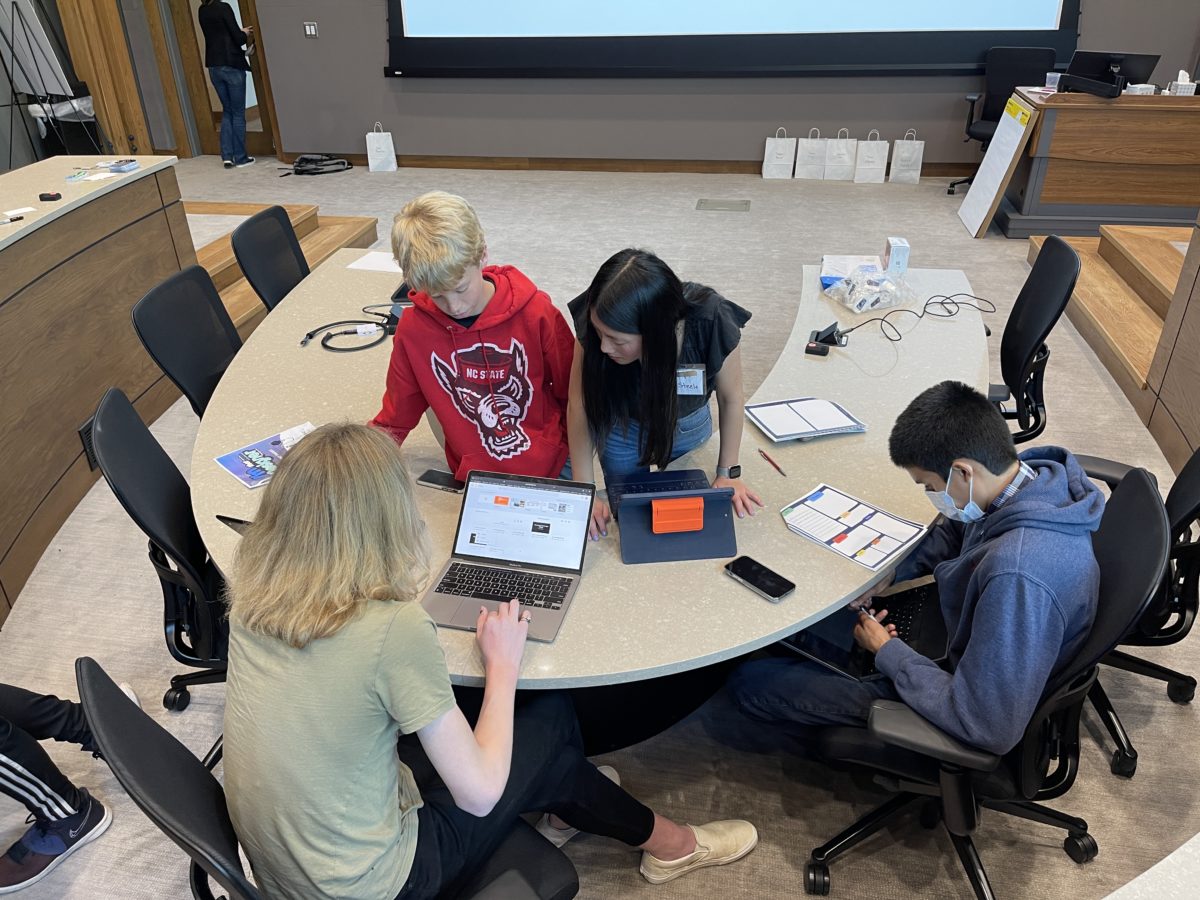

Share this story
- Tech is a growing industry in North Carolina. Read more about how students are powering North Carolina's High Tech Learning Accelerator to learn about and prepare for jobs in the industry.
- “We knew that one of the principles — no matter what we designed — that we were going to hold strong to is that the learners would be at the center of everything we do,” Lynn Moody said about The Innovation Project's North Carolina High Tech Learning Accelerator.
|
|
As of December 2021, North Carolina had approximately 45,000 tech openings, which was up 52.9% from the previous year. And growth in North Carolina’s tech industry is expected to continue to grow 6.1% by 2026 — ninth in the country.
So how is the state preparing for this booming industry and its expected growth? The North Carolina High Tech Learning Accelerator is an initiative of The Innovation Project (TIP) and is designed to invite learners to explore, experience, and navigate pathways toward high-tech jobs.
TIP brings together North Carolina school district superintendents to find and implement innovative practices to improve public schools. TIP districts are located across the state, including both rural and urban communities.
This month, over 30 students from across seven school districts met in Wilmington to attend the “I’m that Designer” event hosted by TIP. They were tasked to answer a design question: “What kinds of learning experiences might you design to help students learn about, prepare for, and pursue high-tech jobs?”
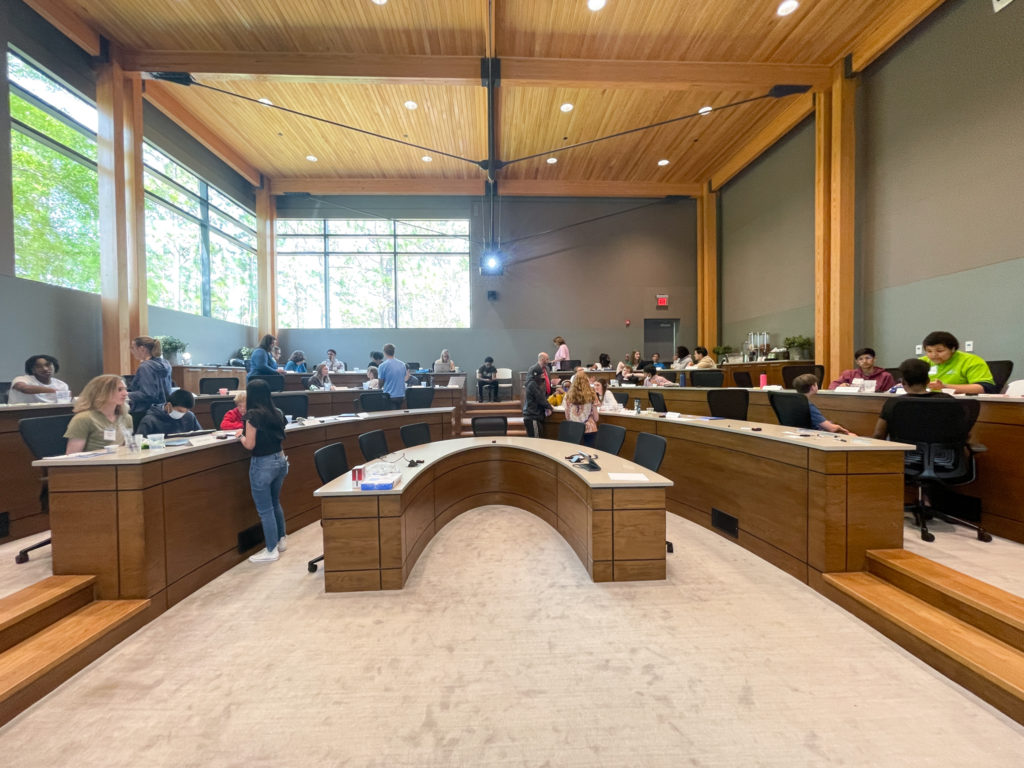

“Our original picture of how the High Tech Accelerator would look is ‘what is the best way to engage students so that there’s a direct pipeline into these high-tech jobs?’” Lynn Moody, strategic advisor for TIP, said.


This is exactly how the team began. The first goal of this initial stage was to create a design concept that would engage learners in high-tech careers. The TIP team felt that it was most important to start with students because they know what they want better than anyone.
TIP has five design principles: learner agency, equity, relevance, connection, and transformation. With learner agency in mind, TIP created the “I’m that Designer” event.
These school districts were represented:
- Asheboro City Schools
- Chatham County Schools
- Cumberland County Schools
- Edgecombe County Schools
- Elizabeth City – Pasquotank Public School
- Granville County Schools, Guilford County Schools
- Hoke County Schools
- Mount Airy City Schools
- New Hanover County Schools
- Rockingham County Schools
- Rowan-Salisbury Schools
- Scotland County Schools
- Vance County Schools
- Wake County Schools
- Warren County Schools
- Winston-Salem/Forsyth County Schools
Starting with student-led work
“We knew that one of the principles — that no matter what we designed — that we were going to hold strong to is that the learners would be at the center of everything we do,” Moody said. “It would be about them what they need, how they want it, what excites them, and what draws out their passion.”
Moody said it’s easy to assume what’s best for students, but educators can’t know until they ask. To get started, TIP reached out to superintendents in its 17 districts and began connecting with students. First, via Zoom, and then TIP knew it wanted to bring learners together in person.
Learners from these districts were invited to spend a few days at Live Oak Bank in Wilmington. Live Oak Bank fully funded the event – providing housing, food, and meeting spaces for the event. “I’m that Designer” included students, educators, and parents. Students conceptualized the High Tech Learning Accelerator, and educators in these districts brainstormed how these ideas could be carried out across the state.
Student ideas included innovative summer camps with a social-emotional focus, class integration at the high school level, and a collaborative curriculum with neighboring community colleges and universities – just to name a few. Students met their team members on a Thursday morning and presented their proposals Friday at lunch. The quick turnaround pushed students to work efficiently, with the entire design process guided by District C, a local startup that prepares students for work. The startup helps high school students learn to solve real-life problems.
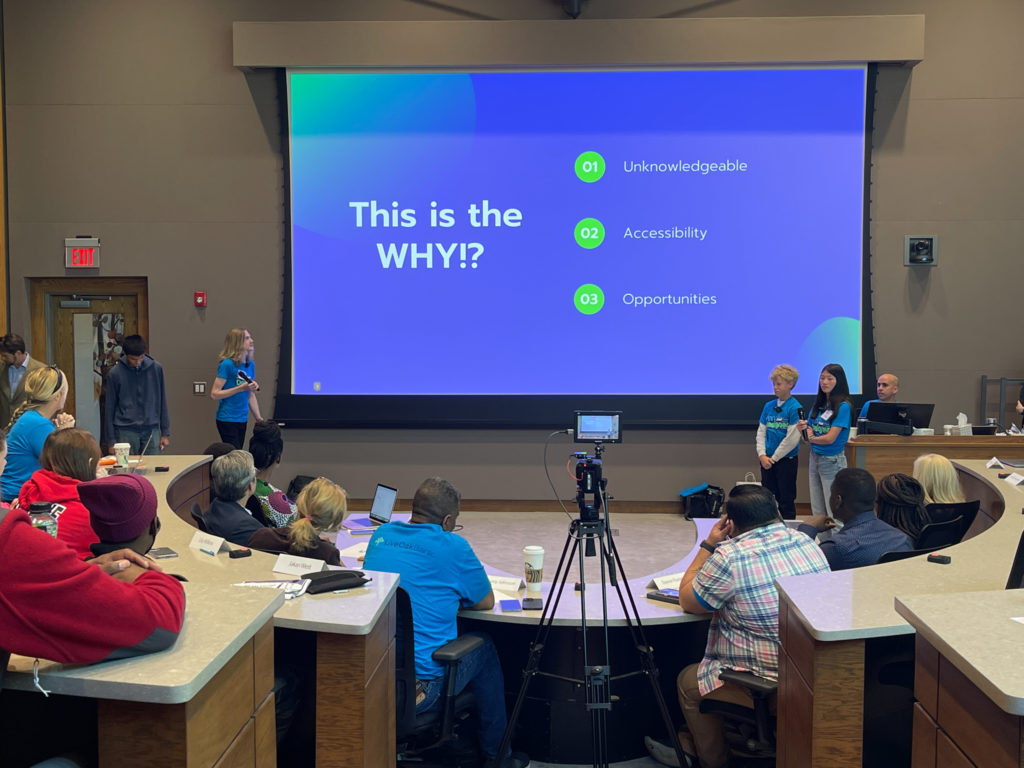

What’s next for TIP?
After this kick-off event, TIP will reassess its original design concept. As a part of the “design-build” process, the original concept will be continuously refined and expanded to improve the Accelerator for as long as it continues. At the start, this will mean incorporating student, educator, and parent feedback and thoughts into the original design.
Prioritizing exploration, experience, and career navigation allows the Accelerator to work on a continuum. Ideally, this will allow learners to increase their skillsets, network with high-tech industry leaders, and navigate possible career pathways.
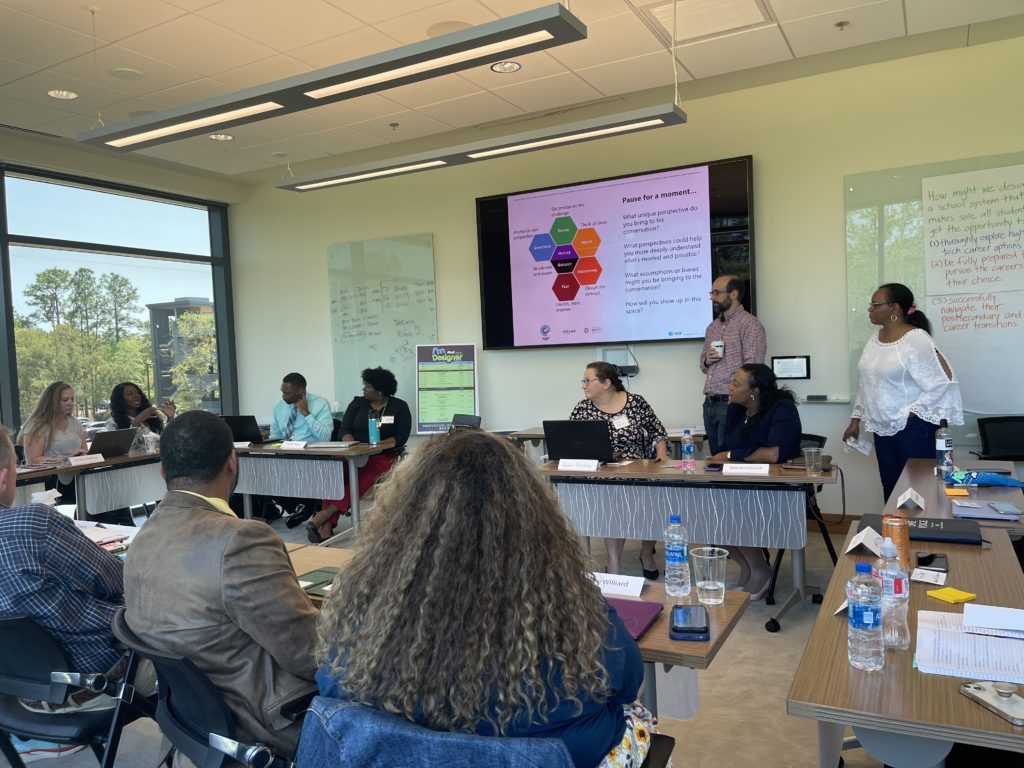

In addition to students, Innovation Leads from these 17 districts also came and discussed how innovation should look in their schools. They brainstormed how to create equitable opportunities in schools that allow all students to pursue high-tech careers if interested. Innovation Leads are tasked with prioritizing innovation in their districts, even outside of the NC High-Tech Learning Accelerator.
Now, The Innovation Project team will begin planning for the next stage of the Accelerator – an official launch in May.
Moody said the “I’m that Designer” event pushed students to take a leap of faith.
“The students came in all nervous, none of them knew what they were showing up for, somebody in their school district just said, Hey, would you be interested in going and talking to these people about this?’” Moody said. “And they took a leap of faith.”
